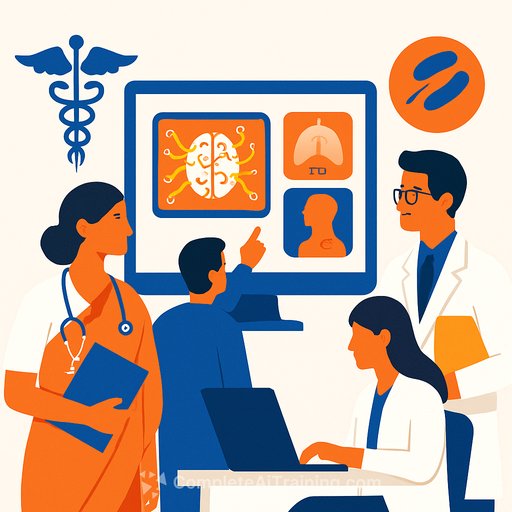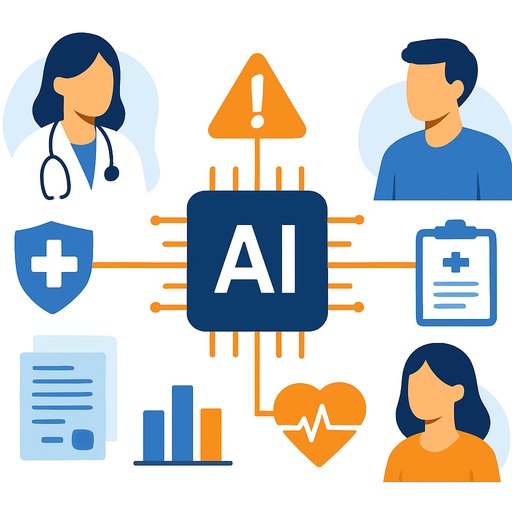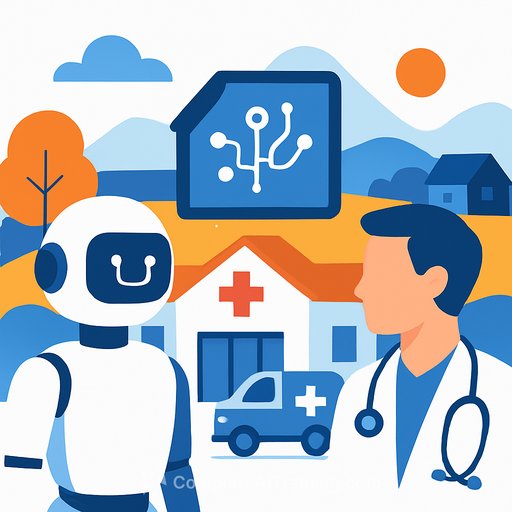Tamil Nadu forms expert committee to advance AI in healthcare
Tamil Nadu has set up an expert committee to evaluate and guide the use of Artificial Intelligence in the state's health system. Early detection of tuberculosis and cancer is the immediate focus, with pilots now active at Government Royapettah Hospital and the Government Hospital in Periyar Nagar.
The Tamil Nadu Medical Services Corporation (TNMSC) is already testing AI models to read X-rays for TB screening. CT scans and X-rays will be anonymised and analysed for early disease signals, while doctors will provide final confirmation of diagnoses.
What's being piloted
AI tools will flag potential findings such as early-stage lung cancer or TB, conditions that are often difficult to spot at first presentation. A private agency's system has been installed at two centres to assess workflow fit, accuracy, and clinical usefulness.
Feedback from clinicians will guide scale-up decisions. This includes defining where AI adds value in triage, second reads, and quality assurance without slowing clinics or adding noise.
Clinical oversight remains central: AI outputs are decision-support, not diagnosis. All findings require clinician review and confirmation.
Governance and committee structure
The expert committee includes the Health Secretary; Managing Director, TNMSC; Project Director, Tamil Nadu Health Systems Project; Mission Director, National Health Mission (Tamil Nadu); Directors of Medical Education and Research, Medical and Rural Health Services, Public Health and Preventive Medicine; the State TB Officer; and 20 experts, including a professor of radiology. A Government Order constituting the committee was issued recently.
The group will also engage experts from Anna University, IIT Madras, and other engineering institutions. The mandate: identify high-impact use cases, set guardrails for safety and ethics, and submit a report on statewide adoption pathways.
Why it matters for hospitals and clinicians
- Earlier detection: Consistent, high-sensitivity screening can surface subtle findings that merit a closer look, especially in chest imaging.
- Operational relief: AI can support triage and second reads in high-volume settings, freeing time for complex cases.
- Quality and equity: Standardised reads may help reduce variance across facilities when paired with strong clinical governance.
- Data privacy: Anonymisation and secure handling of imaging data are non-negotiable requirements.
Practical steps to prepare your facility
- Define clear use cases (e.g., TB screening, lung nodule flagging) and success metrics (sensitivity, specificity, time-to-report, recall rates).
- Set up an AI governance group with radiology, pulmonology, oncology, IT, ethics, and biomedical engineering representation.
- Validate models locally with retrospective data before live use; monitor drift and false positives/negatives in production.
- Standardise anonymisation, data security, and audit trails. Align with consent and communication protocols for patients.
- Train staff on workflow changes, escalation rules, and how to interpret and document AI outputs.
- Plan for integration with PACS/RIS and ensure uptime, latency targets, and support processes are clear.
Evidence and guardrails
AI for chest radiography has shown strong performance in TB screening when implemented with proper validation and oversight. For policy and program design, see WHO guidance on AI-based CAD for TB screening and ethics in AI for health.
- WHO: Operational handbook on TB screening with AI-based CAD
- WHO: Ethics & governance of AI for health
What the committee will deliver
Based on pilot feedback, the committee will outline how AI can be deployed statewide, where it fits in clinical pathways, and how to manage undiagnosed or hard-to-detect cases more effectively. Expect guidance on procurement, validation standards, data governance, and training needs across facilities.
Workforce update: Village Health Nurses (VHNs)
Of the 2,250 VHN vacancies announced two years ago, court proceedings have now cleared issuance of appointment orders for candidates from government training institutions. Preparatory work is underway, with counselling scheduled to allow candidates to choose their postings, and appointment orders to be handed over on September 22.
Public health note: dog bites
Measures are being developed to keep the stray dog population under control, with the goal of reducing dog bites and improving community safety.
Upskilling for clinical AI adoption
If your team is building AI capability for imaging, triage, or care pathways, structured learning can speed implementation. Curated options by job role can help align training with day-to-day responsibilities.
Bottom line: Tamil Nadu's pilots are a pragmatic step-prove value in real workflows, keep clinicians in control, and scale with clear governance. Hospitals that prepare now with data readiness, validation protocols, and staff training will move faster as statewide guidance lands.
Your membership also unlocks:






